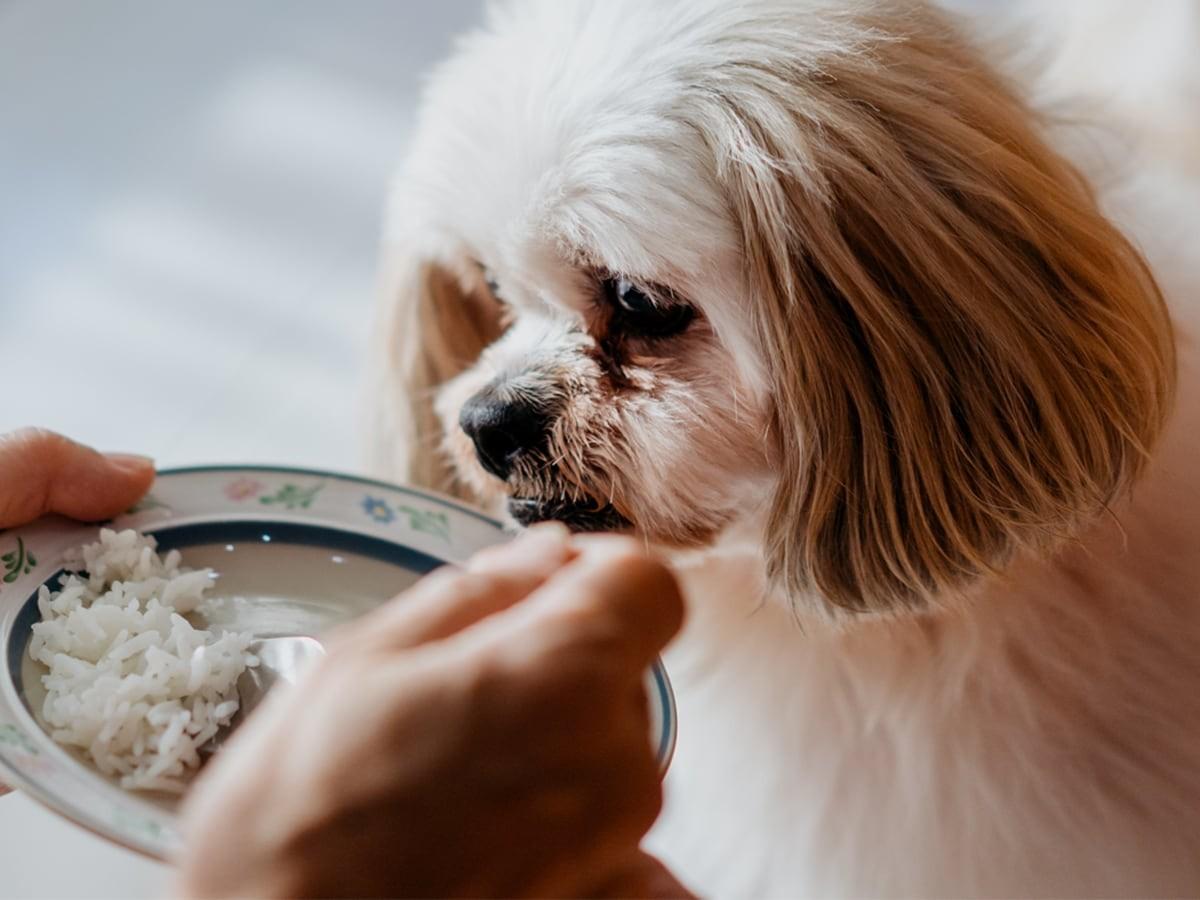Rice is a staple food for humans across the globe, but can dogs eat rice too? The answer is yes! You might be surprised to find rice listed as an ingredient in many commercial dog foods. This article will explore the benefits and risks of feeding rice to dogs, how to prepare it safely, and answer common questions about rice in a dog's diet.
Is Rice Safe for Dogs?
Yes, rice is safe for dogs to eat. Both white rice and brown rice can be included in a dog's diet in moderation. While rice offers several nutritional benefits, it's essential to understand how to prepare it correctly and when it's most appropriate to offer it to your dog.
Benefits of Rice for Dogs
Rice provides several nutritional advantages for dogs:
Energy: The carbohydrates in rice are an excellent source of energy for dogs.
Fiber: Brown rice, in particular, is a good source of fiber, which aids in digestion and can help with weight management.
Low in Sodium: Rice is naturally low in sodium, making it a suitable option for dogs with dietary restrictions.
Vitamins and Minerals: Rice contains essential vitamins and minerals like B vitamins, iron, and magnesium, which contribute to overall health.
White Rice vs. Brown Rice for Dogs
Can dogs eat cooked rice, and is there a difference between white and brown rice? Both white and brown rice are safe for dogs.
White rice is easier to digest and is often recommended for dogs with upset stomachs.
Brown rice has a lower glycemic index than white rice and is higher in fiber, which can help with weight management and prevent constipation. However, it can be harder for some dogs to digest.
Ultimately, the best choice depends on your dog's individual needs and preferences.
Is White or Brown Rice Better for Dogs?
Both white and brown rice can be part of a healthy diet for dogs. Brown rice is often considered slightly healthier due to its higher fiber and nutrient content, but white rice is easier to digest and can be beneficial for dogs with sensitive stomachs.
Can Dogs Eat Fully Cooked Rice?
Yes, dogs should only eat fully-cooked rice. Uncooked rice can be difficult for dogs to digest and may cause stomach upset.
Potential Risks of Feeding Rice to Dogs
While rice is generally safe for dogs, there are a few potential risks to consider:
Constipation: White rice, with its lower fiber content, can contribute to constipation in some dogs.
High Blood Glucose: Excessive consumption of white rice can lead to spikes in blood sugar, especially for dogs prone to diabetes.
Arsenic Poisoning: Rice can contain arsenic, and long-term exposure to high levels of arsenic can be harmful.
Arsenic in Rice: Minimizing the Risk
Different types of rice have varying levels of arsenic. Here are some tips to reduce the risk:
Choose Brown Rice: Brown rice generally has lower arsenic levels than white rice.
Rinse Thoroughly: Washing rice before cooking can help remove some of the arsenic.
Variety is Key: Don't rely on rice as the sole source of carbohydrates in your dog's diet. Offer a variety of other grains and vegetables.
When to Feed Rice to Dogs
Rice can be particularly beneficial in the following situations:
Upset Stomach: Plain, cooked white rice is often recommended by veterinarians for dogs experiencing diarrhea or vomiting.
Dietary Changes: When transitioning your dog to a new food, mixing in a small amount of rice can help ease the transition and prevent digestive upset.
How to Prepare Rice for Your Dog
Buy Organic: Opt for organic rice to reduce exposure to pesticides.
Wash Thoroughly: Rinse the rice before cooking to remove dirt and excess starch.
Cook Plain: Avoid adding any seasonings, salt, or spices.
Add Protein: Combine rice with a source of protein, such as cooked chicken or fish, for a balanced meal.
How Much Rice Should a Dog Eat?
Rice should be given in moderation. A general guideline is to limit rice to no more than 10% of your dog's daily caloric intake. Always consult your veterinarian for personalized guidance on appropriate portion sizes.
Expert Insights from Spot
As much as we love to share our favorite foods with our pets, it's important to remember that not all human foods are safe for dogs. Spot's internal data shows that pet insurance claims for dietary indiscretions in pets average $642*, underscoring the importance of caution and research before sharing snacks with our pets.
Conclusion
Rice can be a healthy and safe addition to your dog's diet when fed in moderation and prepared correctly. Both white and brown rice offer nutritional benefits, but it's essential to be mindful of potential risks like arsenic exposure. Always prioritize a balanced diet for your dog and consult your veterinarian for personalized advice on incorporating rice into their meal plan.

Creative manager by day, pet enthusiast all the time! After 19 years with my dog (hopefully he wins the award for oldest pet in the world), I enjoy spending my days brainstorming tail-wagging content, and sniffing out the latest trends in the pet world.
*Jan 2019 to April 2024 administrator claims data.
Can Dogs Eat Rice? (n.d.). In www.petmd.com. Retrieved October 4, 2024, from https://www.petmd.com/dog/nutrition/can-dogs-eat-rice
FoodData Central. (n.d.). In fdc.nal.usda.gov. Retrieved October 4, 2024, from https://fdc.nal.usda.gov/fdc-app.html#/food-details/169757/nutrients
Mohan, V., Spiegelman, D., Sudha, V., Gayathri, R., Biling Hong, Praseena, K., Anjana, R. M., Wedick, N. M., Arumugam, K., Malik, V., Sabitha Ramachandran, Bai, M. R., Henry, J. K., Hu, F. B., Willett, W., & Krishnaswamy, K. (2014). Effect of brown rice, white rice, and brown rice with legumes on blood glucose and insulin responses in overweight Asian Indians: a randomized controlled trial. In Diabetes technology & therapeutics (Vol. 16, Issue 5, pp. 317–325). Diabetes technology & therapeutics. https://doi.org/10.1089/dia.2013.0259
seoadmin. (2020). Food Allergy Signs Every Pet Owner Should Know. In Reed Animal Hospital. https://www.reedanimalhospital.com/blog/signs-to-look-for-if-your-pet-has-an-allergy-to-their-food/
Your Dog Might Be Eating Too Much Rice Which May Cause Arsenic Toxicity. (2020). https://www.technology.org/2020/08/08/your-dog-might-be-eating-too-much-rice-which-may-cause-arsenic-toxicity/
The information presented in this article is for educational and informational purposes only and does not constitute or substitute for the advice of your veterinarian.












